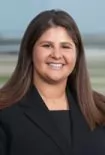A Conversation On CMS' Emergency Preparedness Compliance For Healthcare Providers
Hurricane Irma recently wreaked havoc on the Caribbean and much of the state of Florida. In the storm's aftermath, ten residents of a South Florida nursing facility died because the facility lost power, and did not have access to a backup generator.
On September 8, 2016, CMS published the final rule enumerating the Emergency Preparedness Requirements for the Medicare and Medicaid Participating Providers and Suppliers. While emergency preparedness rules existed previously, CMS did not believe the went far enough in ensuring that providers were adequately prepared to protect beneficiaries in the case of a disaster. Specifically, CMS referenced several natural and manmade disasters including the September 11 terrorist attacks, anthrax attacks, the H1N1 influenza epidemic, Hurricane Sandy and Hurricane Katrina. We all can appreciate that there was much to be learned in terms of emergency preparedness from each of these events. CMS agreed and what resulted was the final rule. It should be noted that these requirement and either a Condition of Participation or Condition for Coverage for Medicare providers. Providers have had a year since publication of the rule to take steps towards compliance. The regulations under the final rule must be implemented by November 16, 2016, less than 60 days from now. There are 17 provider types which are affected by the final rule.
The final rule is meant to address three essentials CMS believes are necessary for maintaining access to healthcare services during an emergency First, safeguarding human resources, next maintaining business continuity and finally protecting physical resources.
In light of recent natural events in Florida and Texas and the looming deadline for compliance, we have asked James Randolph of the Tampa-based Pathfinder Group to be here with us to provide some helpful tips for providers with respect the CMS Emergency Preparedness Requirements.
The content of this article is intended to provide a general guide to the subject matter. Specialist advice should be sought about your specific circumstances.


